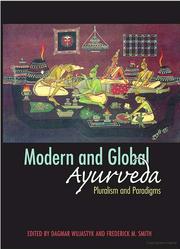| Listing 1 - 10 of 13 | << page >> |
Sort by
|

ISBN: 0805773088 9780805773088 Year: 1980 Volume: 370 Publisher: [Lieu de publication inconnu]: [éditeur inconnu],
Abstract | Keywords | Export | Availability | Bookmark
 Loading...
Loading...Choose an application
- Reference Manager
- EndNote
- RefWorks (Direct export to RefWorks)
American literature --- Didion, J. --- Women and literature --- -History --- -Didion, Joan --- -Criticism and interpretation --- -Literature --- History --- Didion, Joan --- Criticism and interpretation. --- Criticism and interpretation --- Women and literature - - History - - 20th century - United States --- -Didion, Joan - Criticism and interpretation

ISBN: 0393058638 9780393058635 Year: 2006 Publisher: New York (N.Y.): Norton,
Abstract | Keywords | Export | Availability | Bookmark
 Loading...
Loading...Choose an application
- Reference Manager
- EndNote
- RefWorks (Direct export to RefWorks)
Neurologists --- Medical scientists --- Nobel Prizes --- Memory --- Neurobiology --- Cellular signal transduction --- History, 20th Century --- Neurosciences --- Nobel Prize --- history --- Cellular signal transduction. --- Memory. --- Neurobiology. --- Nobel Prizes. --- Kandel, Eric R. --- Neurologists - United States - Biography --- Medical scientists - United States - Biography --- Neurobiology - United States - Personal Narratives --- History, 20th Century - United States - Personal Narratives --- Neurosciences - history - United States - Personal Narratives --- Nobel Prize - United States - Personal Narratives
Book
ISBN: 0135560438 9780135560433 Year: 1969 Publisher: [Lieu de publication inconnu]: [éditeur inconnu],
Abstract | Keywords | Export | Availability | Bookmark
 Loading...
Loading...Choose an application
- Reference Manager
- EndNote
- RefWorks (Direct export to RefWorks)
Women and literature --- History --- Moore, Marianne, --- Criticism and interpretation. --- -History --- -Moore, Marianne --- -Criticism and interpretation --- Moore, Marianne Craig, --- Moore, Marianne --- Criticism and interpretation --- Interviews --- Technique --- Translations --- Moore, Marianne, 1887-1972 - Correspondence --- Women and literature - - History - - 20th century - United States --- -Moore, Marianne - - Criticism and interpretation --- -Women and literature --- -Moore, Marianne -

ISBN: 0195076761 9780195076769 Year: 1993 Publisher: New York (N.Y.) : Oxford university press,
Abstract | Keywords | Export | Availability | Bookmark
 Loading...
Loading...Choose an application
- Reference Manager
- EndNote
- RefWorks (Direct export to RefWorks)
Social ethics --- Philosophy and psychology of culture --- Sociology of culture --- United States --- Arts and society --- -Popular culture --- History --- -Arts and society --- #KVHA:Verenigde Staten --- #KVHA:Kunst; Verenigde Staten --- #KVHA:American Studies --- Arts --- Arts and sociology --- Society and the arts --- Sociology and the arts --- -Social aspects --- Popular culture --- 20th century --- Arts and society - - History - - 20th century - United States --- -Popular culture - United States --- United States of America

ISBN: 0791478165 1435663284 9781435663282 9780791478165 0791474895 9780791474907 0791474909 9780791474891 Year: 2008 Publisher: Albany: State university of New York press,
Abstract | Keywords | Export | Availability | Bookmark
 Loading...
Loading...Choose an application
- Reference Manager
- EndNote
- RefWorks (Direct export to RefWorks)
Medicine, Ayurvedic. --- Medicine, Ayurvedic --- Ayurveda --- Ayurvedic medicine --- Ayurvedism --- Hindu medicine --- Medicine, Hindu --- Medicine, Oriental --- History. --- History, 20th Century --- History --- history --- Medicine, Ayurvedic - History --- Medicine, Ayurvedic - Europe --- Medicine, Ayurvedic - India --- Medicine, Ayurvedic - United States --- History, 20th Century - Europe --- History, 20th Century - India --- History, 20th Century - United States --- Medicine, Ayurvedic - history - Europe --- Medicine, Ayurvedic - history - India --- Medicine, Ayurvedic - history - United States --- Ayruveda --- traditional medicine systems --- the Indian subcontinent --- philosophy --- anthropology --- politics --- economics --- biomedicine --- pharmacy --- alternative health care --- Maharishi Ayurveda --- New Age religions
Book
ISBN: 1421404427 9781421404424 9781421401157 1421401150 Year: 2011 Publisher: Baltimore: Johns Hopkins University press,
Abstract | Keywords | Export | Availability | Bookmark
 Loading...
Loading...Choose an application
- Reference Manager
- EndNote
- RefWorks (Direct export to RefWorks)
Ironically, transforming the hope of a normal life into a purchasable commodity for people with bleeding disorders made it all too easy to ignore the potential dangers of delivering greater health and autonomy to hemophilic boys and men.
Liver Transplantation --- History, 20th Century --- HIV Infections --- Blood Transfusion --- Hemophilia A --- Hemophilia --- Classic hemophilia --- Factor VIII deficiency --- Haemophilia --- Hematophilia --- Hemorrhagic diathesis --- Blood coagulation disorders --- Blood transfusion --- Blood transfusion therapy --- Hemotherapy --- Transfusion medicine --- Transfusion of blood --- Transfusion therapy --- Transfusion therapy, Blood --- Surgery --- Blood banks --- Blood groups --- Hospitals --- Transfusion-free surgery --- HIV (Viruses) infections --- HTLV-III infections --- HTLV-III-LAV infections --- Human T-lymphotropic virus III infections --- Lentivirus infections --- Sexually transmitted diseases --- trends --- transmission --- therapy --- history --- History. --- Transfusion committees --- Complications. --- Complications and sequelae --- History --- Hemophilia - United States - History --- Hemophilia A - history --- Hemophilia A - therapy --- HIV Infections - transmission --- History, 20th Century - United States --- Liver Transplantation - trends

ISBN: 0805776427 0805738223 9780805776423 Year: 1992 Volume: TUSAS 596 Publisher: [Lieu de publication inconnu]: [éditeur inconnu],
Abstract | Keywords | Export | Availability | Bookmark
 Loading...
Loading...Choose an application
- Reference Manager
- EndNote
- RefWorks (Direct export to RefWorks)
African Americans in literature --- Afro-Americans in literature --- Afro-Amerikanen in de literatuur --- Afro-Américains dans la littérature --- Amerikaanse zwarten in de literatuur --- Black Americans in literature --- Negroes in literature --- Noirs américains dans la littérature --- Zwarte Amerikanen in de literatuur --- Women and literature --- Femmes et littérature --- History --- Histoire --- Walker, Alice, --- Criticism and interpretation --- Critique et interprétation --- -History --- -Walker, Alice --- -Criticism and interpretation --- 820 "19" WALKER, ALICE --- -African Americans in literature --- Literature --- Engelse literatuur--20e eeuw. Periode 1900-1999--WALKER, ALICE --- -앨리스 워커 --- Criticism and interpretation. --- 820 "19" WALKER, ALICE Engelse literatuur--20e eeuw. Periode 1900-1999--WALKER, ALICE --- Noirs américains dans la littérature --- Femmes et littérature --- Critique et interprétation --- Walker, A. --- Leventhal, Alice Walker, --- וואקר, אליס, --- アリスウォーカー, --- Walker, Alice --- Walker, Alice, 1944 --- Women and literature - - History - - 20th century - United States --- -Walker, Alice - - Criticism and interpretation --- -Afro-Americans in literature --- -Walker, Alice -

ISBN: 080188344X 9780801883446 Year: 2006 Publisher: Baltimore: Johns Hopkins University press,
Abstract | Keywords | Export | Availability | Bookmark
 Loading...
Loading...Choose an application
- Reference Manager
- EndNote
- RefWorks (Direct export to RefWorks)
Examines the interconnected development of four key aspects of neonatal intensive care. The authors present neonatal bioethics as a paradigm of complex societal conversation among physicians, philosophers, policymakers, judges, and legislators that led to responsible societal oversight of a controversial medical innovation. Neonatal intensive care has been one of the most morally controversial areas of medicine during the past thirty years. This study examines the interconnected development of four key aspects of neonatal intensive care: medical advances, ethical analysis, legal scrutiny, and econometric evaluation. The authors assert that a dramatic shift in societal attitudes toward newborns and their medical care was a stimulus for and then a result of developments in the medical care of newborns. They divide their analysis into three eras of neonatal intensive care. The first, characterized by the rapid advance of medical technology from the late 1960s to the Baby Doe case of 1982, established neonatal care as a legitimate specialty of medical care, separate from the rest of pediatrics and medicine. During this era, legal scholars and moral philosophers debated the relative importance of parental autonomy, clinical prognosis, and children's rights.The second era, beginning with the Baby Doe case (a legal battle that spurred legislation mandating that infants with debilitating birth defects be treated unless the attending physician deems efforts to prolong life "futile"), stimulated efforts to establish a consistent federal standard on neonatal care decisions and raised important moral questions concerning the meaning of "futility" and of "inhumane" treatment. In the third era, a consistent set of decision-making criteria and policies was established. These policies were the result of the synergy and harmonization of newly agreed upon ethical principles and newly discovered epidemiological characteristics of neonatal care. Tracing the field's recent history, notable advances, and considerable challenges yet to be faced, the authors present neonatal bioethics as a paradigm of complex conversation among physicians, philosophers, policy makers, judges, and legislators which has led to responsible societal oversight of a controversial medical innovation.
Neonatal intensive care --- Neonatology --- Intensive Care Units, Neonatal --- History, 20th Century --- Intensive Care, Neonatal --- Moral and ethical aspects --- History --- ethics --- trends --- history --- legislation and jurisprudence --- neonatale intensieve zorg --- soins néonataux intensifs --- History. --- legislation & jurisprudence --- Neonatal pediatrics --- Perinatology --- Newborn infants --- Intensive care, Neonatal --- Intensive care of the newborn --- Newborn intensive care --- Infant health services --- Pediatric intensive care --- Neonatal emergencies --- Hospital care --- Neonatal intensive care - Moral and ethical aspects - United States --- Neonatology - Moral and ethical aspects - United States --- Neonatology - United States - History --- Intensive Care Units, Neonatal - ethics - United States - vase reports --- History, 20th Century - United States - case reports --- Intensive Care Units, Neonatal - trends - United States - case reports --- Intensive Care, Neonatal - ethics - United States - case reports --- Intensive Care, Neonatal - history - United States - case reports --- Intensive Care, Neonatal - legislation and jurisprudence - United States - case reports
Book
ISBN: 9780520270169 0520270169 9786613587343 0520950437 1280492112 9780520950436 Year: 2011 Publisher: Berkeley (Calif.): University of California press,
Abstract | Keywords | Export | Availability | Bookmark
 Loading...
Loading...Choose an application
- Reference Manager
- EndNote
- RefWorks (Direct export to RefWorks)
The cigarette is the deadliest artifact in the history of human civilization. It is also one of the most beguiling, thanks to more than a century of manipulation at the hands of tobacco industry chemists. In Golden Holocaust, Robert N. Proctor draws on reams of formerly-secret industry documents to explore how the cigarette came to be the most widely-used drug on the planet, with six trillion sticks sold per year. He paints a harrowing picture of tobacco manufacturers conspiring to block the recognition of tobacco-cancer hazards, even as they ensnare legions of scientists and politicians in a web of denial. Proctor tells heretofore untold stories of fraud and subterfuge, and he makes the strongest case to date for a simple yet ambitious remedy : a ban on the manufacture and sale of cigarettes.
Government regulation --- History, 20th century --- Medical --- Psychology --- Persuasive communication --- Self-help --- Smoking --- Tobacco industry --- Tobacco industry. --- Tobacco use --- History --- History. --- Psychopathology --- Addiction. --- Substance abuse & addictions --- General. --- Psychological aspects. --- Adverse effects --- Economics --- Health aspects. --- United States. --- Tobacco Industry --- Government Regulation --- Persuasive Communication --- Tobacco --- Tobacco manufacture and trade --- Tobacco products industry --- Plant products industry --- Health aspects --- Psychological aspects --- E-books --- History, 20th Century --- history --- adverse effects --- psychology --- economics --- Tabac --- Tabagisme --- Industrie --- Histoire --- Aspect sanitaire --- Mass communications --- Sociology of health --- Social psychology --- United States --- Tobacco industry - United States - History --- Tobacco use - Health aspects --- Smoking - Psychological aspects --- Tobacco Industry - history - United States --- Government Regulation - history - United States --- History, 20th Century - United States --- Persuasive Communication - United States --- Smoking - adverse effects - United States --- Smoking - psychology - United States --- Tobacco Industry - economics - United States --- america and tobacco. --- cigarette addiction. --- cigarettes and death. --- dangers of smoking. --- drug addiction. --- drug research literature. --- drugs and health. --- history of cigarettes. --- history of tobacco. --- how to quit smoking. --- medical ethics. --- medical history. --- medical lit. --- medicine. --- public health history. --- public health. --- smoking and cancer. --- smoking kills. --- smoking recovery. --- tobacco addiction. --- tobacco and cancer. --- tobacco and death. --- tobacco business. --- tobacco industry lies. --- tobacco industry. --- tobacco manufacturers. --- tobacco scandal. --- United States of America
Book
ISBN: 1283116391 9786613116390 158046761X 1580464610 1580463398 9781580464611 Year: 2010 Publisher: Rochester: University of Rochester Press,
Abstract | Keywords | Export | Availability | Bookmark
 Loading...
Loading...Choose an application
- Reference Manager
- EndNote
- RefWorks (Direct export to RefWorks)
The decades around 1900 were crucial in the evolution of modern medical and social sciences, and in the formation of various national health services systems. The modern fields of psychiatry and mental health care are located at the intersection of these spheres. There emerged concepts, practices, and institutions that marked responses to challenges posed by urbanization, industrialization, and the formation of the nation-state. These psychiatric responses were locally distinctive, and yet at the same time established influential models with an international impact. In spite of rising nationalism in Europe, the intellectual, institutional and material resources that emerged in the various local and national contexts were rapidly observed to have had an impact beyond any national boundaries. In numerous ways, innovations were adopted and refashioned for the needs and purposes of new national and local systems.International Relations in Psychiatry: Britain, Germany, and the United States to World War II brings together hitherto separate approaches from the social, political, and cultural history of medicine and health care and argues that modern psychiatry developed in a constant, though not always continuous, transfer of ideas, perceptions, and experts across national borders.
Comparative psychiatry -- History -- 20th century. --- Cross-Cultural Comparison -- Germany. --- Cross-Cultural Comparison -- Great Britain. --- Cross-Cultural Comparison -- United States. --- History, 19th Century -- Germany. --- History, 19th Century -- Great Britain. --- History, 19th Century -- United States. --- History, 20th Century -- Germany. --- History, 20th Century -- Great Britain. --- History, 20th Century -- United States. --- Internationality -- Germany. --- Internationality -- Great Britain. --- Internationality -- United States. --- Interprofessional Relations -- Germany. --- Interprofessional Relations -- Great Britain. --- Interprofessional Relations -- United States. --- Psychiatry -- History -- 20th century. --- Psychiatry -- History -- Germany. --- Psychiatry -- History -- Great Britain. --- Psychiatry -- History -- United States. --- Psychiatry --- Comparative psychiatry --- Behavioral Sciences --- Europe --- Culture --- Humanities --- Medicine --- History, Modern 1601 --- -Interpersonal Relations --- North America --- Social Sciences --- Health Occupations --- Psychology, Social --- Anthropology, Cultural --- Behavioral Disciplines and Activities --- Sociology --- Americas --- Geographic Locations --- Anthropology, Education, Sociology and Social Phenomena --- Disciplines and Occupations --- Anthropology --- Geographicals --- Behavior and Behavior Mechanisms --- Psychiatry and Psychology --- Interprofessional Relations --- Germany --- United States --- History --- Great Britain --- History, 20th Century --- History, 19th Century --- Internationality --- Cross-Cultural Comparison --- Health & Biological Sciences --- Psychiatry - General --- Transcultural Studies --- Comparison, Cross-Cultural --- Comparisons, Cross-Cultural --- Cross Cultural Comparison --- Cross-Cultural Comparisons --- Studies, Transcultural --- Study, Transcultural --- Transcultural Study --- Cultural Characteristics --- Globalization --- International Aspects --- International Perspectives --- International Relations --- Multinational Aspects --- Multinational Perspectives --- Aspect, International --- Aspect, Multinational --- Aspects, International --- Aspects, Multinational --- International Aspect --- International Perspective --- Multinational Aspect --- Multinational Perspective --- Perspective, International --- Perspective, Multinational --- Perspectives, International --- Perspectives, Multinational --- Relations, International --- International Law --- 19th Cent. History (Medicine) --- 19th Cent. History of Medicine --- 19th Cent. Medicine --- Historical Events, 19th Century --- History of Medicine, 19th Cent. --- History, Nineteenth Century --- Medical History, 19th Cent. --- Medicine, 19th Cent. --- 19th Century History --- 19th Cent. Histories (Medicine) --- 19th Century Histories --- Cent. Histories, 19th (Medicine) --- Cent. History, 19th (Medicine) --- Century Histories, 19th --- Century Histories, Nineteenth --- Century History, 19th --- Century History, Nineteenth --- Histories, 19th Cent. (Medicine) --- Histories, 19th Century --- Histories, Nineteenth Century --- History, 19th Cent. (Medicine) --- Nineteenth Century Histories --- Nineteenth Century History --- 20th Cent. History (Medicine) --- 20th Cent. History of Medicine --- 20th Cent. Medicine --- Historical Events, 20th Century --- History of Medicine, 20th Cent. --- History, Twentieth Century --- Medical History, 20th Cent. --- Medicine, 20th Cent. --- 20th Century History --- 20th Cent. Histories (Medicine) --- 20th Century Histories --- Cent. Histories, 20th (Medicine) --- Cent. History, 20th (Medicine) --- Century Histories, 20th --- Century Histories, Twentieth --- Century History, 20th --- Century History, Twentieth --- Histories, 20th Cent. (Medicine) --- Histories, 20th Century --- Histories, Twentieth Century --- History, 20th Cent. (Medicine) --- Twentieth Century Histories --- Twentieth Century History --- Aspects, Historical --- Historical Aspects --- Aspect, Historical --- Historical Aspect --- Histories --- Psychiatrists --- Psychiatrist --- Etiquette, Medical --- Medical Etiquette --- Relations, Interprofessional --- Interdisciplinary Communication --- Behavior And Behavior Mechanism --- General Social Development and Population --- Cultural Anthropology --- Material Culture --- Ethnography --- Culture, Material --- Ethnographies --- Material Cultures --- Qualitative Research --- Psychology, Perceptual --- Social Psychology --- Perceptual Psychology --- Health Professions --- Health Occupation --- Health Profession --- Profession, Health --- Professions, Health --- Occupations --- Science, Social --- Sciences, Social --- Social Science --- Gender Issues --- Husband-Wife Communication --- Partner Communication --- Social Relationships --- Communication, Husband-Wife --- Communication, Partner --- Communications, Husband-Wife --- Communications, Partner --- Husband Wife Communication --- Husband-Wife Communications --- Interpersonal Relation --- Partner Communications --- Relation, Interpersonal --- Relations, Interpersonal --- Relationship, Social --- Relationships, Social --- Social Relationship --- Social Behavior --- Friends --- Emotional Intelligence --- History of Medicine, Modern --- Medicine, Modern --- Modern History (Medicine) --- Modern Medicine --- History, Modern --- Modern History --- 1601- History, Modern --- History, Modern (Medicine) --- Modern 1601- History --- Medical Specialities --- Medical Specialties --- Medical Specialty --- Specialities, Medical --- Specialties, Medical --- Specialty, Medical --- Medical Speciality --- Speciality, Medical --- Health Workforce --- Beliefs --- Cultural Background --- Cultural Relativism --- Customs --- Background, Cultural --- Backgrounds, Cultural --- Belief --- Cultural Backgrounds --- Cultural Relativisms --- Cultures --- Relativism, Cultural --- Relativisms, Cultural --- Proxemics --- Behavioral Science --- Proxemic --- Science, Behavioral --- Sciences, Behavioral --- Psychiatry, Comparative --- Medicine, Comparative --- Psychology, Comparative --- Medicine and psychology --- Mental health --- Psychology, Pathological --- Psychiatry - History - 20th century --- Comparative psychiatry - History - 20th century --- Psychiatry - history - Germany --- Psychiatry - history - Great Britain --- Psychiatry - history - United States --- Cross-Cultural Comparison - Germany --- Cross-Cultural Comparison - Great Britain --- Cross-Cultural Comparison - United States --- History, 19th Century - Germany --- History, 19th Century - Great Britain --- History, 19th Century - United States --- History, 20th Century - Germany --- History, 20th Century - Great Britain --- History, 20th Century - United States --- Internationality - Germany --- Internationality - Great Britain --- Internationality - United States --- Interprofessional Relations - Germany --- Interprofessional Relations - Great Britain --- Interprofessional Relations - United States --- USA. --- Deutschland --- Grossbritannien --- United Kingdom --- Isle of Man --- Vereinigtes Königreich von Großbritannien und Nordirland --- Großbritannien und Nordirland --- England --- UK --- Angleterre --- Brīṭāniyā al-ʿUẓmā --- Brīṭāniya 'l-ʿUẓmā --- Vereinigtes Königreich Großbritannien und Nordirland --- United Kingdom of Great Britain and Northern Ireland --- Grande Bretagne --- British Isles --- United Kingdom of Great Britain and Ireland --- Royaume-Uni --- Gran Bretagna --- U.K. --- GB --- Grande-Bretagne --- British Empire --- Britisches Reich --- Briten --- Schottland --- Commonwealth --- 1707 --- -Deutsche Länder --- Heiliges Römisches Reich --- Rheinbund --- Deutscher Bund --- Norddeutscher Bund --- Deutsches Reich --- BRD --- Federal Republic of Germany --- Republic of Germany --- Allemagne --- Ǧumhūrīyat Almāniyā al-Ittiḥādīya --- Bundesrepublik Deutschland --- Niemcy --- République Fédérale d'Allemagne --- Repubblica Federale di Germania --- Germanija --- Federativnaja Respublika Germanija --- FRG --- Deyizhi-Lianbang-Gongheguo --- Deutsche --- Deutsches Sprachgebiet --- 03.10.1990 --- -Psychiatry --- Britain. --- Cross-national standardization. --- Cultural history. --- European nationalism. --- Experts. --- Germany. --- Health care. --- Industrialization. --- Innovations. --- International Relations. --- Medicine history. --- Medicine. --- Modern medical. --- Nation-state. --- National health services. --- Political history. --- Practices. --- Psychiatric responses. --- Psychiatry. --- Social history. --- Social sciences. --- Transfer of ideas. --- United States. --- Urbanization. --- World War II.
| Listing 1 - 10 of 13 | << page >> |
Sort by
|

 Search
Search Feedback
Feedback About UniCat
About UniCat  Help
Help News
News